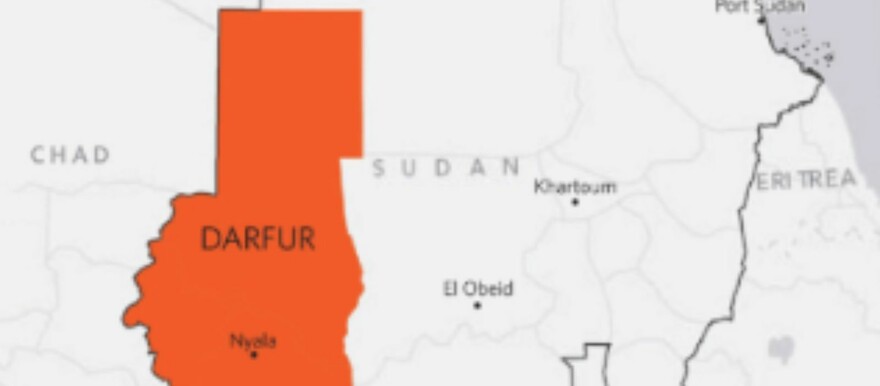A human rights activist who also doubles as the director of the Future Organization for Enlightenment and Development in South Darfur said that the roots of the current Sudanese crisis are due to the center’s failure to distribute resources and transfer power fairly for decades.
Nahla Yousif Mohammed explained to Radio Tamazuj on Tuesday that public policies in Sudan, since independence, have produced the reality that Sudan is experiencing now.
She added that the Darfur region has been suffering from wars since 2003 and that “this led to the widespread proliferation of weapons, militias, and armed groups.”
She reported that all the Darfur armed groups that signed the Juba Peace Agreement retained all their military equipment.
Yousif pointed out that there is also a need to address the problem of open borders with neighboring countries, especially with Chad and Central Africa.
She stated that she believes that political stability in Khartoum is closely linked to political stability in Darfur, and there must be a political vision to solve the problems of Darfur, Blue Nile, and South Kordofan.
“The ongoing war has complicated the situation in Darfur, including poverty, displacement, asylum, human rights violations, and tribal problems.” Yousif asserted.
The activist insisted that the greatest disaster lies in the poverty-stricken displacement and refugee camps, where the people suffer from deteriorating health conditions, and the borders between neighboring countries are a major cause of insecurity in the region.
According to Yousif, the participation of the Russians and the French in the fighting between the army and the Rapid Support Forces has led to the proliferation of drugs and money laundering. She said that the supposed Sudanese leaders sold out the country and now the borders have been thrown open and anyone walks in and out at will.
“Large foreign groups are fighting with the Rapid Support Forces that came from outside Sudan, and these Arab groups help them in everything.” Yousif charged. “Everyone must monitor this before the people lose their country (Sudan). I hope to emerge from this harsh experience with lessons.”
Yousif called on the people of Darfur to unite, saying, “Despite the differences in regions and ethnicities, Darfur remains one region, and there must be a voice for it, and roles must also be distributed among the various sectors.”
She also called on both the head of the Sudan People’s Liberation Movement-North (SPLM-N), Abdulaziz Adam Al-Hilu, and the head of the Abdel Wahid Liberation Army Movement, Mohamed Nour, to adopt peaceful means to silence the weapons.
Yousif added that Sudanese who are fleeing war mostly face economic problems, legal complexities, in the host countries, and challenges of accommodation and how to enroll children in schools and universities.
She revealed that activists in the public sphere are facing security challenges momentarily, stressing a places like Kampala in Uganda have a heavy deployment of army intelligence which is risky for human rights defenders.
The Future Organization for Enlightenment and Development is a human rights organization that defends rights in Darfur, with a focus on women in particular. It was founded in 2014 in South Darfur State and works with partners in the rest of the Darfur region.




